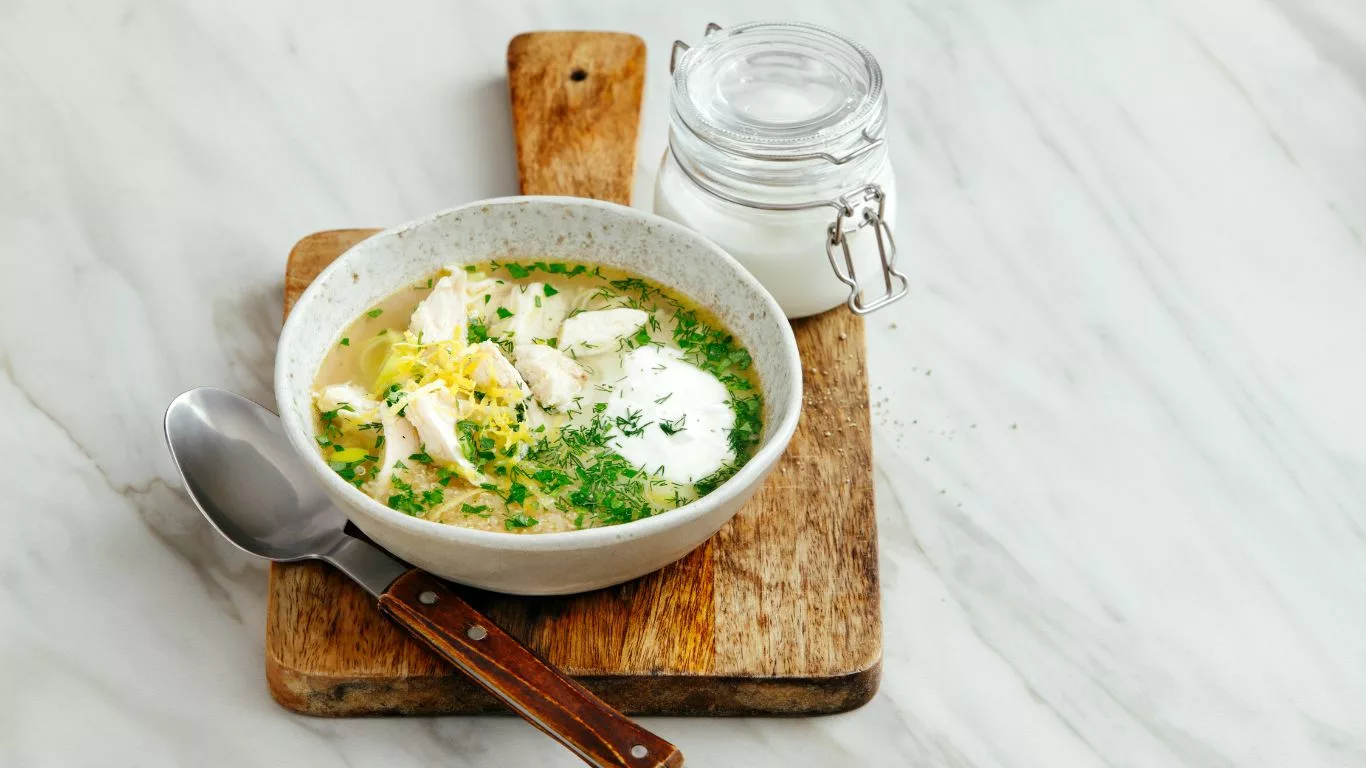Natural Antacids for GERD That Soothe Without Side Effects
When my GERD was at its worst, I used to pop antacids like candy. Chalky tablets in every pocket, purse, and glove box. Sure, they offered quick relief—but I knew deep down that relying on them daily wasn’t sustainable. That’s when I started exploring natural antacids. And let me tell you, the shift wasn’t just better for my digestion—it made me feel more in control. If you’re tired of the acid-burn cycle and want soothing alternatives that work *with* your body, not against it, you’re in the right place.
What Are Natural Antacids?

Natural antacids are food-based or herbal substances that help neutralize stomach acid or protect your esophagus without the chemical baggage. Unlike traditional over-the-counter options that may cause side effects like constipation, magnesium overload, or even nutrient absorption issues, these alternatives aim to *balance* rather than block your stomach’s acid function.
Why They Matter
- Fewer side effects: No rebound acid or dependency.
- Support long-term gut health: Many options double as digestive aids.
- Easy to include in daily routines: They’re often pantry staples!
How They Work
Natural antacids often fall into two main camps: those that physically coat and protect your digestive lining, and those that help neutralize or buffer acid. Many do both. Unlike PPIs or H2 blockers, which suppress stomach acid long-term (sometimes to a fault), these approaches aim for gentle balance—relieving discomfort without disrupting digestion.
Top Food-Based Natural Antacids That Soothe GERD

1. Oatmeal
I start my day with oatmeal almost every morning. It’s gentle, filling, and naturally absorbs stomach acid. It’s also easy to customize with GERD-safe ingredients like bananas or a spoonful of almond butter. Research even supports its role in gut-soothing thanks to its high-fiber content and low acidity. Curious? Check out this guide on whether oatmeal helps acid reflux.
2. Bananas
These low-acid fruits are a go-to for calming reflux flares. Their smooth texture and natural potassium help regulate stomach lining irritation. Bonus: They also make a great late-night snack when heartburn tries to sneak in after dinner. If you’ve ever wondered if bananas are good for GERD, the answer is yes—with a few individual caveats.
3. Ginger
A powerhouse anti-inflammatory, ginger can be sipped as tea, grated into soups, or chewed raw (if you’re brave). Ginger helps calm the lower esophageal sphincter and may reduce nausea too. I always keep a piece in my fridge just in case.
4. Slippery Elm
This one’s a bit more “herb shop” than pantry staple, but it’s a game changer. Slippery elm contains mucilage—a gooey fiber that coats the throat and stomach lining, forming a barrier against acid. I use it in lozenge form, especially before bed. See more in our guide to using slippery elm for GERD.
5. Aloe Vera Juice
Sipped in small amounts (and only in a purified, decolorized form), aloe vera juice can help soothe inflamed tissue in the esophagus. Just don’t overdo it—it can have a laxative effect. Here’s the science-backed breakdown on aloe vera for acid reflux.
Should I Replace My Medication With Natural Antacids?

Quick answer: talk to your doctor before making changes. But in many cases, incorporating natural antacids can help reduce reliance on conventional meds or prevent occasional reflux episodes from spiraling out of control. These options shine brightest for:
- Mild to moderate GERD symptoms
- Situational heartburn (e.g. after a rich meal)
- Complementing long-term therapy
That said, severe or chronic reflux should still be medically evaluated. GERD can lead to serious complications like Barrett’s esophagus if ignored. Learn more about GERD and its bigger picture from our trusted GERD Natural Remedies Pillar article.
Is Tea an Antacid?

Great question—because not all teas are created equal. While mint and black tea can worsen symptoms due to their relaxing effect on the LES (lower esophageal sphincter), some herbal teas like chamomile, marshmallow root, and licorice root may have soothing, alkaline-forming properties. My personal favorite? A warm mug of chamomile tea in the evening—no milk, no sugar.
Best Teas to Try
- Chamomile (calming and anti-inflammatory)
- Licorice root (natural demulcent, but check blood pressure)
- Marshmallow root tea (coats esophageal lining)
- Fennel tea (helps with gas and bloating)
Should I Drink Tea Before Bed?
Yes—with a few ground rules. Avoid anything caffeinated. Keep portions light and stop drinking 1–2 hours before lying down. The last thing you want is reflux flaring while you’re trying to wind down. You can explore more nighttime relief tips in our article on sleep positions for acid reflux.
Helpful Natural Antacid Tips I Learned the Hard Way

- Don’t lie down right after eating: Give your body 2–3 hours to digest first.
- Chew slowly: The more you chew, the easier it is for your stomach to do its job.
- Track triggers: I kept a reflux journal and discovered surprising culprits like melon and garlic.
- Hydration matters: Water helps dilute acid. Sipping between meals works best.
And if you’re navigating a new GERD diagnosis or simply want more guidance, don’t miss our in-depth look at what to eat for acid reflux and how diet plays a central role.
Comparing Natural Antacids to OTC Heartburn Medications

For anyone who’s been on a PPI (proton pump inhibitor) or antacid chewables for months—or years—it’s natural to wonder how these natural alternatives stack up. I’ve tried both routes, and here’s the honest breakdown of what I’ve experienced and researched.
Short-Term vs. Long-Term Relief
Conventional meds work fast. If you’ve just eaten spicy food and feel the burn crawling up your chest, popping a Tums or drinking liquid antacid might ease it quickly. But the issue is, that short-term fix doesn’t solve the root cause. Natural antacids aim to reduce overall inflammation and support better digestion over time, though they’re not an instant “zap-the-burn” solution.
Body Dependency & Rebound Symptoms
I learned this the hard way—stopping PPIs abruptly can cause a backlash of acid production called rebound reflux. Natural options tend to be gentler and non-habit-forming. They work with your digestive rhythm rather than overriding it.
Gut Health & Microbiome Impact
OTC meds may change gut pH and interfere with nutrient absorption—think magnesium, calcium, and B12 deficiencies. Natural remedies, on the other hand, often enhance digestive balance. Ginger, for instance, supports gastric emptying. And fermented foods—like kefir or miso—promote beneficial bacteria. Speaking of kefir, here’s our take on its potential for GERD.
Herbal Heroes for Reflux Relief

My first introduction to herbs for acid reflux was peppermint—and it didn’t go well. Turns out, mint relaxes the LES and can make reflux worse. But not all herbs are off the table. Some are actually incredibly helpful when used properly.
Licorice Root (DGL Form)
When I chew DGL licorice tablets 15–20 minutes before meals, I feel a noticeable difference. Deglycyrrhizinated licorice doesn’t affect blood pressure like the regular kind and helps protect the stomach lining. You can learn more about it in our complete DGL guide.
Marshmallow Root
No, it’s not the sugary marshmallow from s’mores. Marshmallow root is a traditional herb that produces mucilage, coating the throat and easing irritation. Many herbalists recommend it for GERD, and I’ve found it particularly helpful during winter months when dryness aggravates my reflux.
Chamomile
As a bedtime tea, chamomile has been my go-to ritual. Beyond just relaxation, it contains compounds that reduce inflammation in the gut. Just avoid brands that mix in peppermint or citrus blends. Pure is best.
Natural Antacid Combos That Work Surprisingly Well

Some foods and herbs pair together in beautiful synergy. It’s not just what you eat, but how you combine them that can bring real relief. Here are some of the combos I’ve used in real life with good results:
- Oatmeal + banana slices + ginger tea: My weekday breakfast that never fails.
- Roasted fennel + quinoa + steamed zucchini: Easy on the gut and surprisingly filling.
- Slippery elm lozenges + chamomile tea before bed: A nighttime calming duo that helps prevent waking with throat burn.
Want more reflux-friendly meal ideas? Check out our growing collection of GERD-friendly dinner recipes for inspiration.
Other Surprising Soothers (Beyond Food)

I used to believe reflux was purely about food. But over time, I’ve learned that habits and environment play a bigger role than we think. Here’s what helped me outside the kitchen:
Chewing Gum (Non-Minty)
Yep—chewing gum can stimulate saliva and promote faster acid clearance from the esophagus. But minty flavors can backfire. I use cinnamon or plain gum after meals, and it’s become a surprisingly effective tool. Check our guide on how chewing gum helps reflux.
Breathing Exercises
Deep belly breathing before meals has significantly reduced my post-meal bloating and belching. Try inhaling for 4 seconds, holding for 4, then exhaling for 6. It trains your diaphragm and supports better digestion. Bonus—it helps with stress too, which we know is a major GERD trigger.
Sleeping Slightly Elevated
Nighttime reflux used to be my worst enemy until I started elevating my head 6–8 inches using a wedge pillow. It changed everything. Gravity becomes your ally, not your enemy. You can explore the best options in our GERD pillow review.
FAQ Corner

Is tea acidic?
It depends. Black and green teas are mildly acidic and can be irritating for some people. Herbal teas like chamomile or marshmallow root are generally alkaline-forming and better for reflux relief.
Should I drink tea before bed?
Yes, but choose caffeine-free options and drink them 1–2 hours before lying down. Chamomile or licorice root are excellent bedtime picks for calming the digestive tract.
Is it safe to use natural antacids every day?
For most people, yes. Unlike traditional antacids, natural options tend to be safe for daily use—especially food-based choices like ginger, banana, or oats. Still, moderation is key and it’s wise to rotate your choices.
Can I stop my PPI if I switch to natural remedies?
Please don’t stop cold turkey. Work with a healthcare provider to taper off safely. Using natural support alongside medication is often the best transition strategy.
Continue to our Natural GERD Remedies pillar to dive deeper into holistic solutions that bring real relief.
My Go-To Daily Routine with Natural Antacids

If you’re like me, you need things to be simple and consistent. Natural remedies only work if they’re easy to stick with. Over time, I’ve settled into a daily rhythm that keeps reflux under control without needing a medicine cabinet full of antacids.
Morning
- Wake up: A warm glass of filtered water with a pinch of baking soda (1–2x/week only)
- Breakfast: Oatmeal with banana slices, a sprinkle of chia, and chamomile tea
- Supplements: DGL licorice lozenge before the meal
Midday
- Lunch: Grilled turkey breast, steamed zucchini, and quinoa
- Hydration: Sips of water throughout the day (never large gulps during meals)
- Digestive support: Ginger tea or fennel tea if bloating shows up
Evening
- Dinner (by 6:30 PM): Baked sweet potato with sautéed kale and brown rice
- Pre-bed ritual: Slippery elm lozenge + 10-minute breathing exercise
- Sleep: On wedge pillow or inclined bed
This routine isn’t about perfection—it’s about flow. And it really helps. For more structured diet ideas, try this 7-day GERD diet plan crafted with real-life foods that don’t flare symptoms.
Natural Antacid Recipes That Actually Taste Good

Forget chalky tablets—these are my go-to home remedies that feel more like comfort food than medicine. Easy to prepare, safe for everyday use, and honestly… delicious.
1. Ginger-Banana Smoothie
- 1 ripe banana
- 1/2 tsp fresh grated ginger
- 1/2 cup unsweetened almond milk
- 1 tbsp ground flaxseed
Blend until smooth. It’s gentle, filling, and incredibly soothing—especially mid-morning or post-lunch.
2. Slippery Elm Honey Elixir
- 1 cup warm chamomile tea
- 1/2 tsp slippery elm powder
- 1 tsp raw honey (if tolerated)
Stir until smooth. Sip slowly. Great before bed or after a heavy meal.
3. Gut-Soothing Tea Mix
Combine dried chamomile, licorice root, and marshmallow root in equal parts. Steep 1 tbsp of mix in hot water for 10–12 minutes. Strain and enjoy. Ideal for evening wind-down or during stressful days.
If you’re curious about sweet treats that won’t bite back, check out our GERD-friendly dessert ideas that go beyond bland snacks.
When to See a Doctor—Even If You’re Going Natural

Let’s get real for a second—natural remedies are powerful, but they’re not magic. If you’re experiencing:
- Severe chest pain or trouble swallowing
- Persistent reflux despite natural remedies
- Weight loss, vomiting, or signs of anemia
It’s time to speak with your doctor. You might need an endoscopy or other diagnostic tests. Sometimes GERD overlaps with other conditions like gastritis or esophagitis, and professional guidance is critical. Here’s how GERD is diagnosed properly if you’re unsure where to start.
Final Thoughts: Balance, Not Extremes

I wish someone had told me sooner that managing GERD doesn’t mean choosing between medication or natural options. The truth is, it’s about listening to your body, layering strategies, and being consistent. Some days you’ll need more support than others—and that’s okay.
Natural antacids helped me break the cycle. They gave me space to heal, not just mask the burn. And if they’ve helped me, they can absolutely help you. Just start slow, stay curious, and don’t underestimate the power of simple, gentle choices made daily.
Want to explore even more proven strategies? Visit our Natural Remedies for GERD pillar page for deeper insights backed by research and real-life experience.
Disclaimer: This article is for informational purposes and does not substitute for medical advice. Always consult a licensed healthcare provider for personalized care.

Camellia Wulansari is a dedicated Medical Assistant at a local clinic and a passionate health writer at Healthusias.com. With years of hands-on experience in patient care and a deep interest in preventive medicine, she bridges the gap between clinical knowledge and accessible health information. Camellia specializes in writing about digestive health, chronic conditions like GERD and hypertension, respiratory issues, and autoimmune diseases, aiming to empower readers with practical, easy-to-understand insights. When she’s not assisting patients or writing, you’ll find her enjoying quiet mornings with coffee and a medical journal in hand—or jamming to her favorite metal band, Lamb of God.







